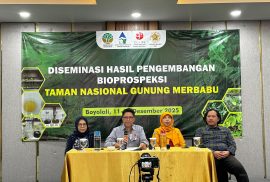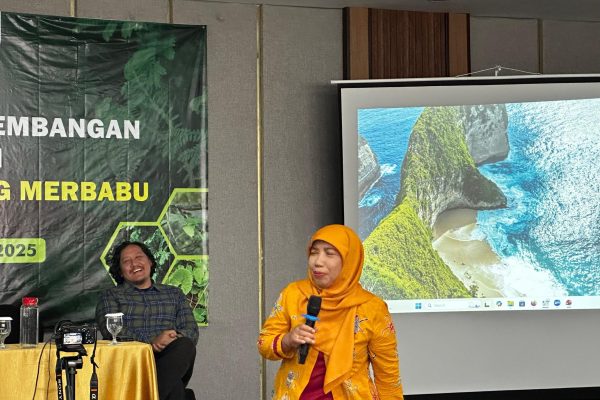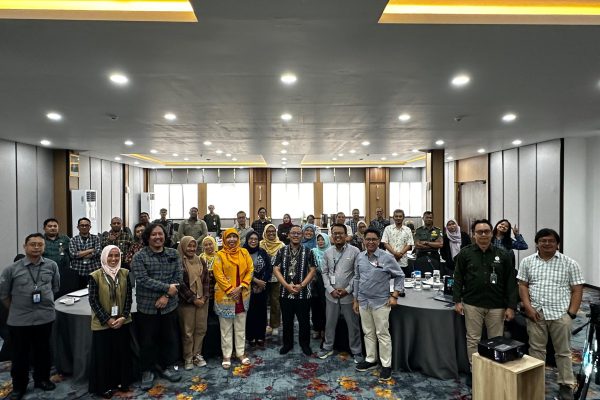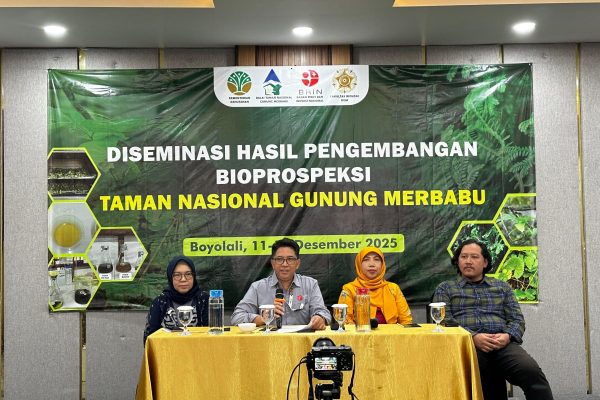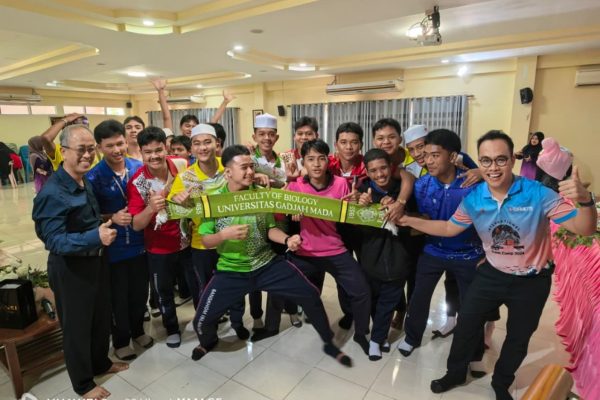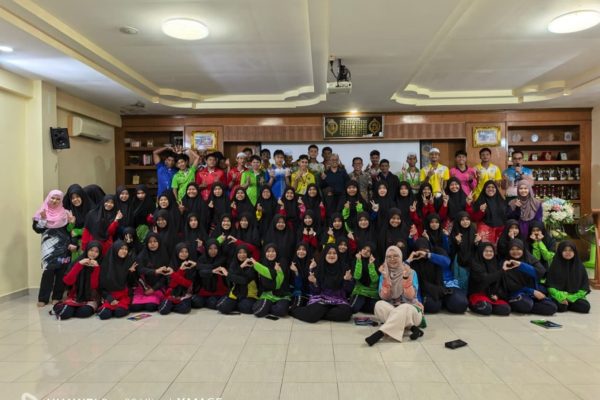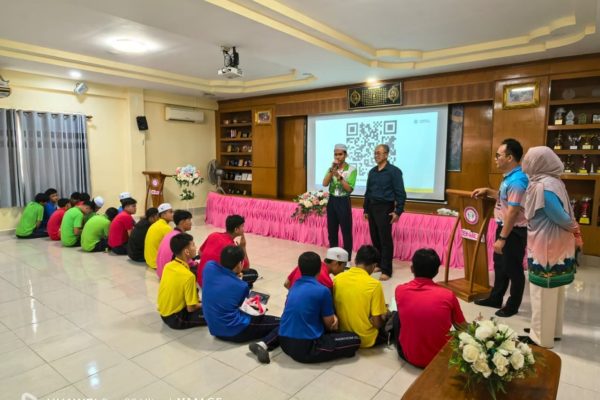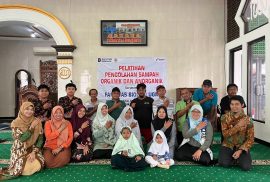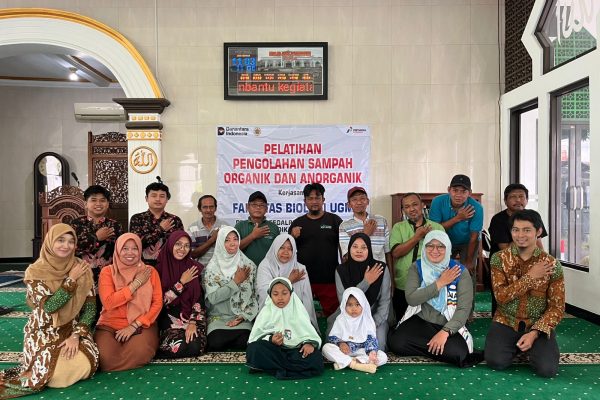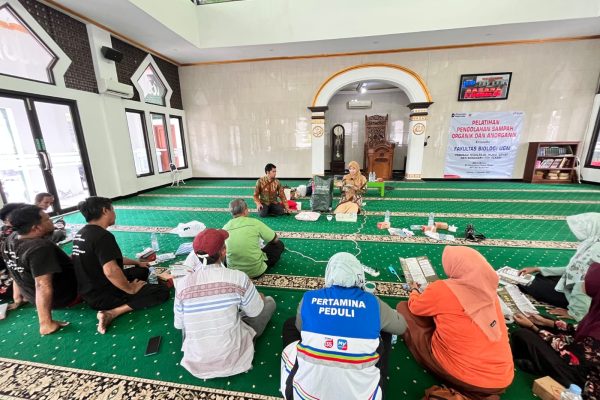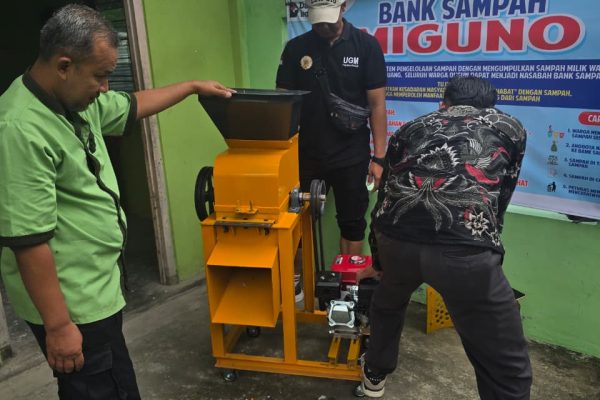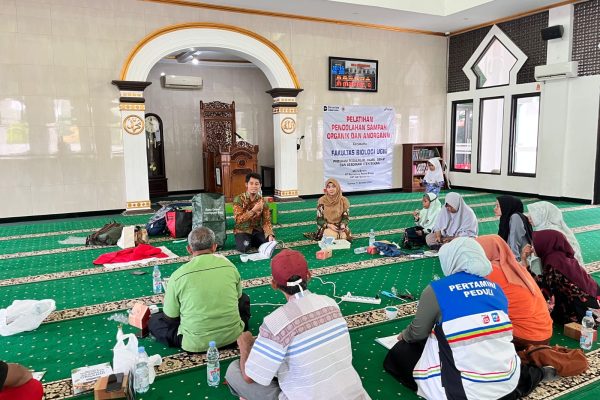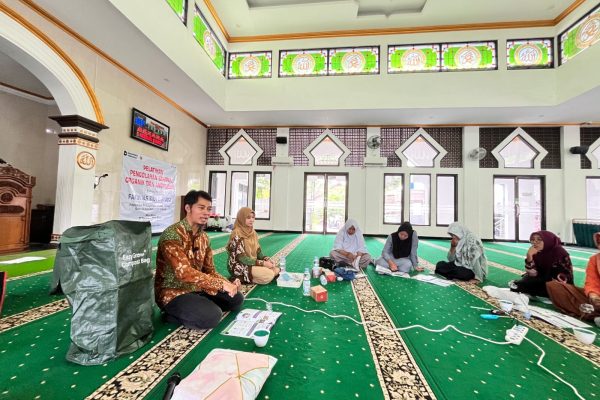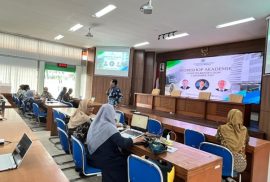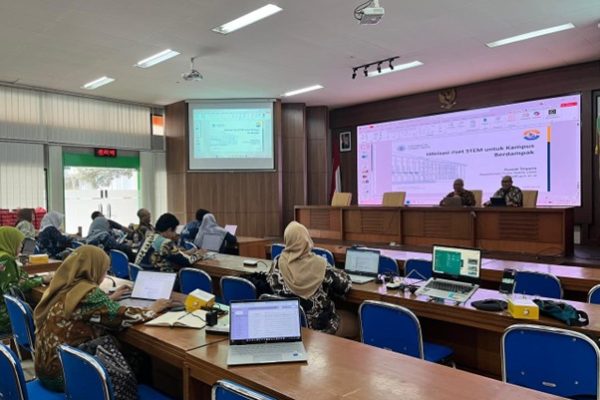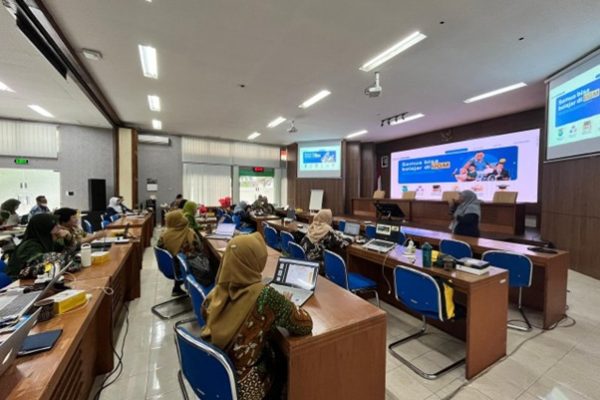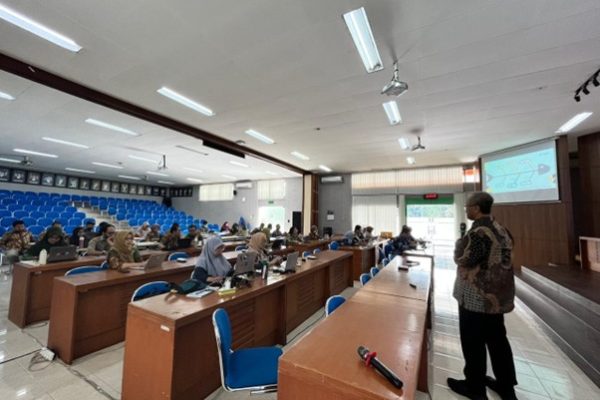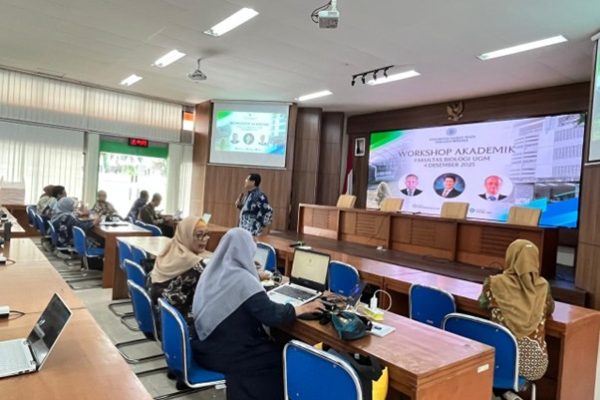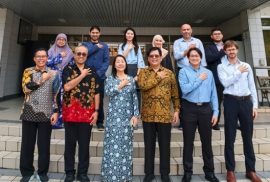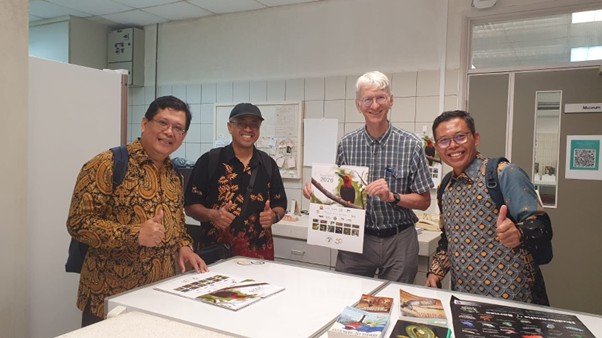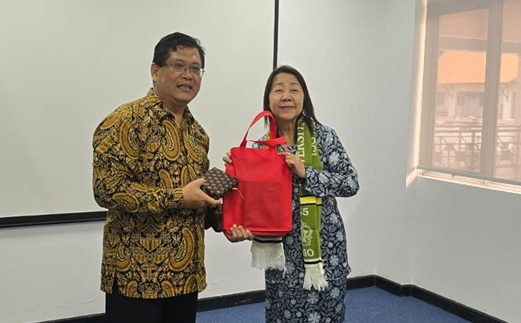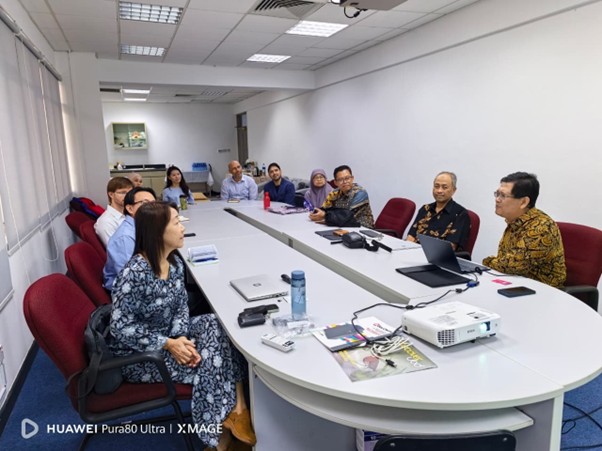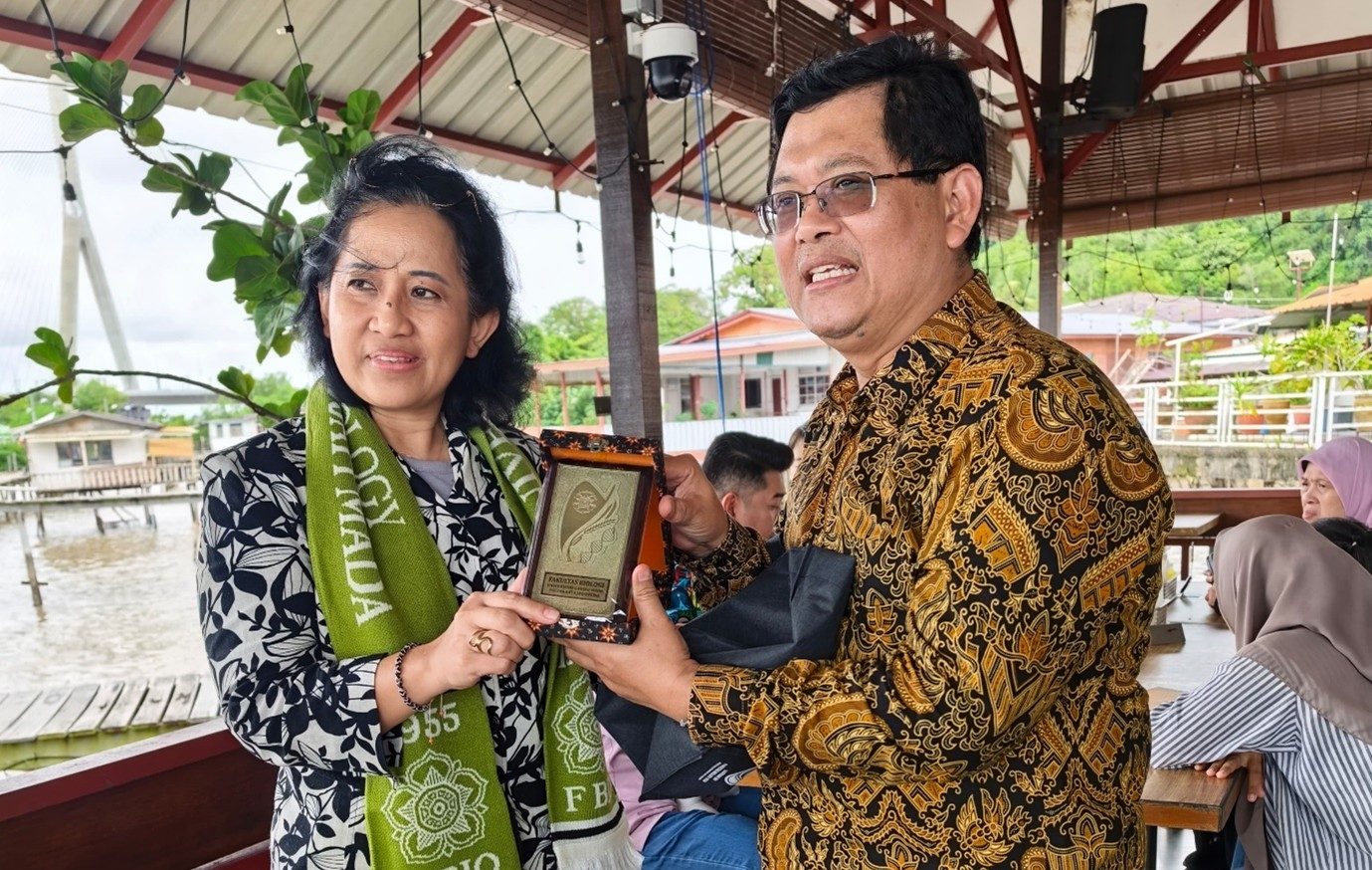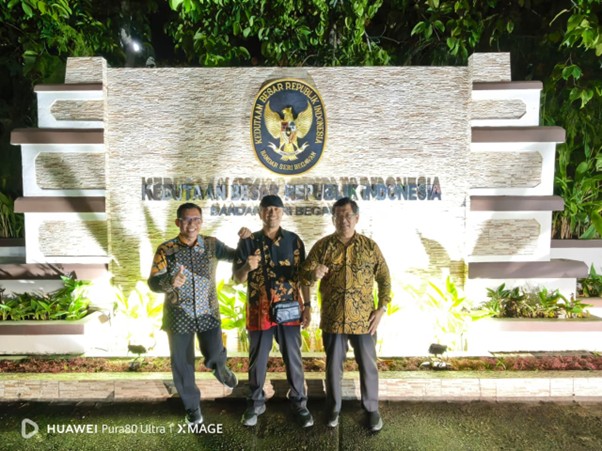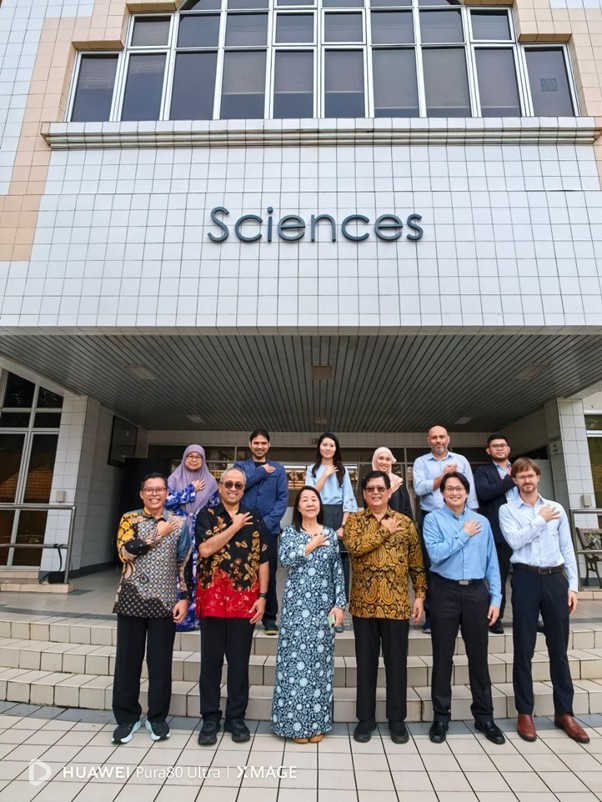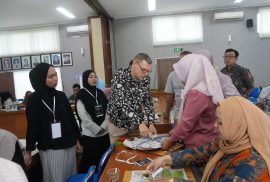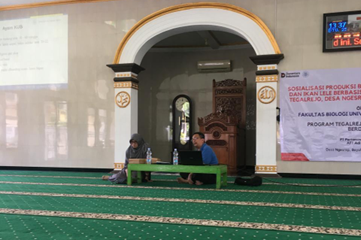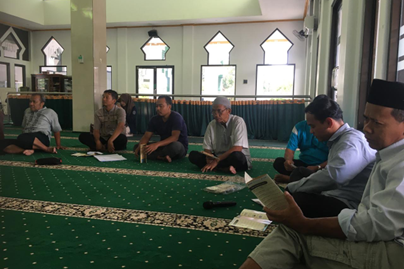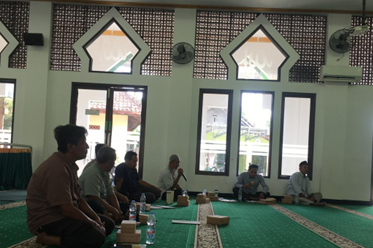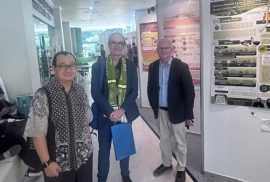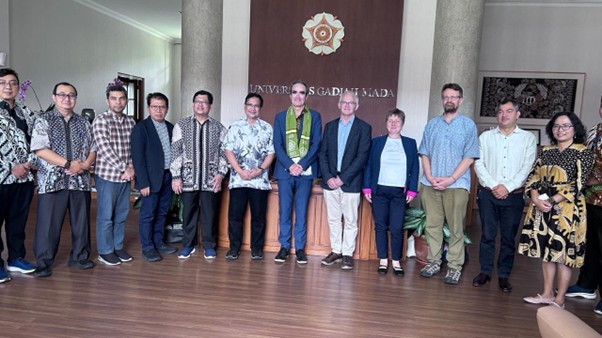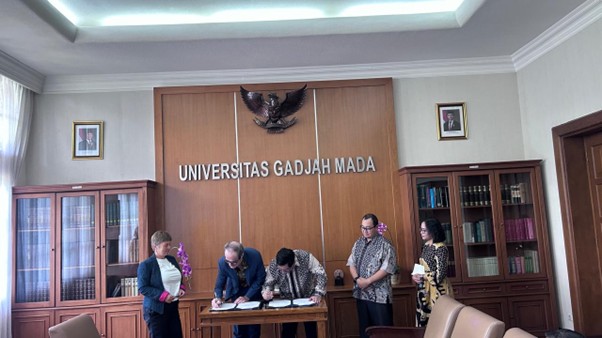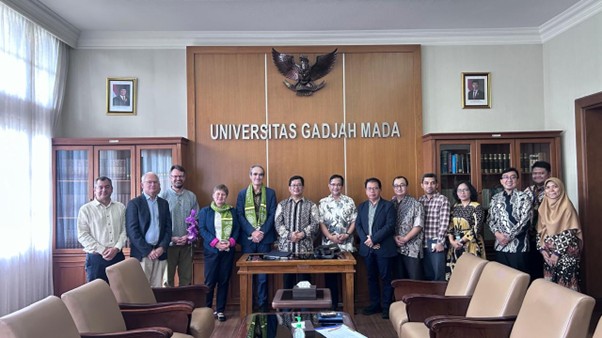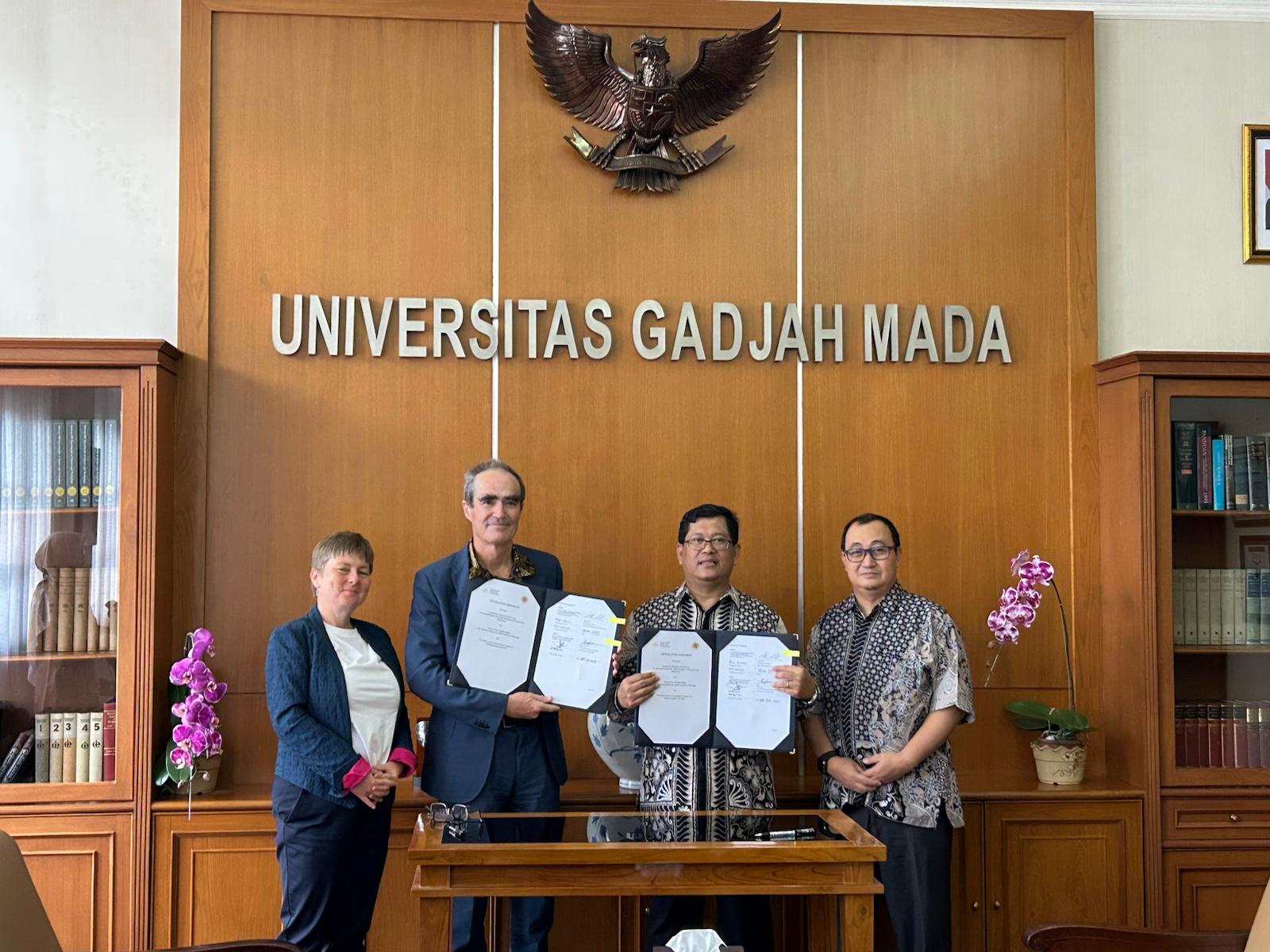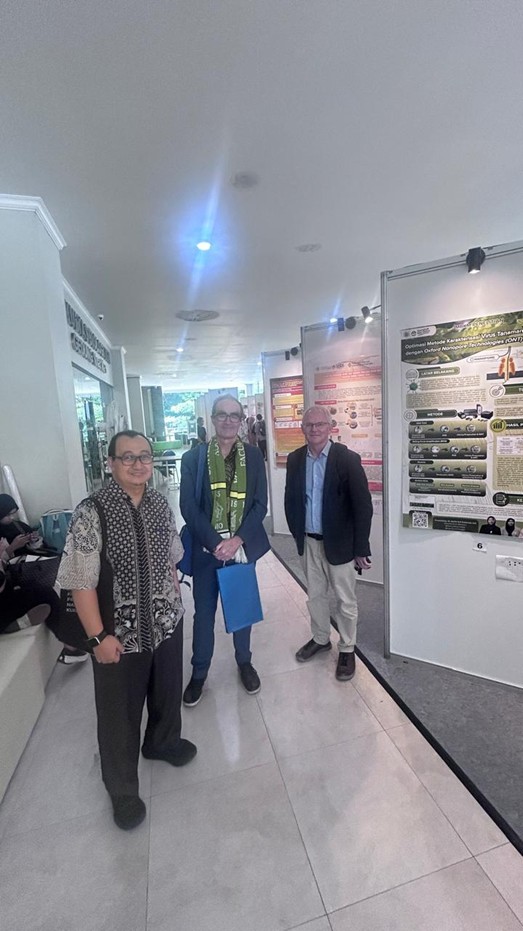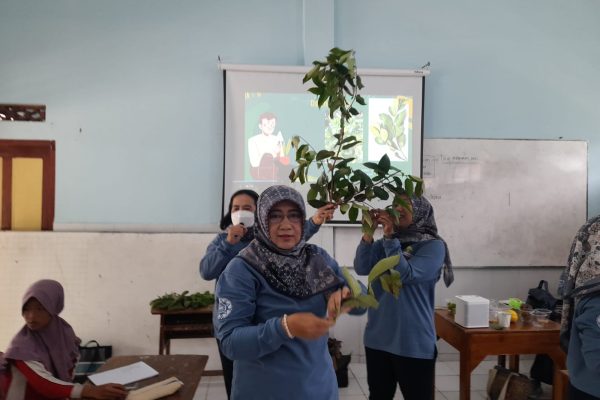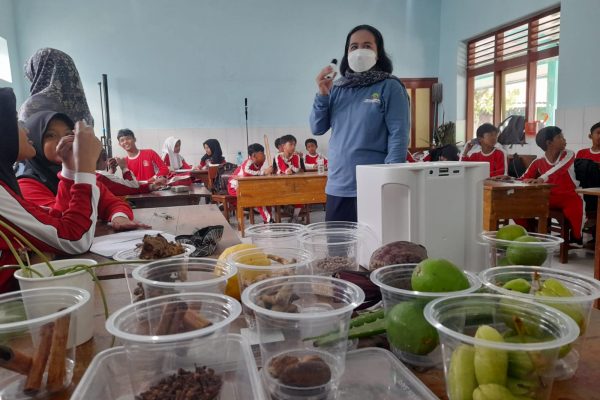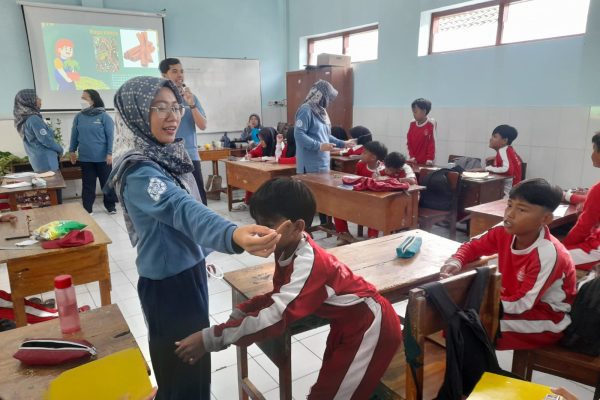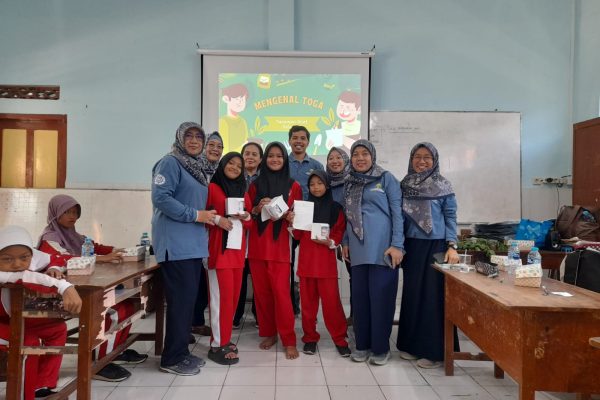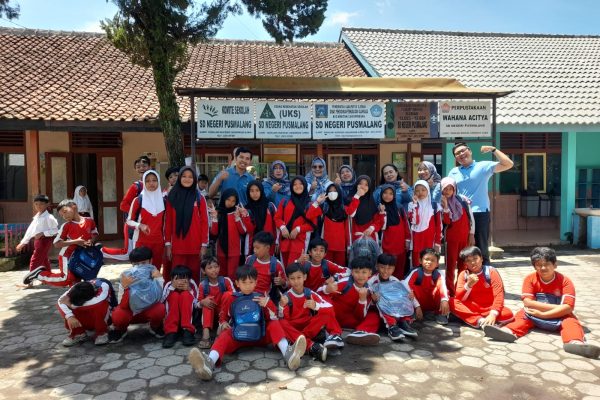Tegalrejo, 11 December 2025
A community service program titled “Community-Based Production of Superior Local Chicken and Catfish Seedlings” was held on November 29, 2025, at the Baiturrahim Masjid in Tegalrejo Hamlet, Ngesrep Village, Boyolali Regency. The event was officially opened by Ms. Siti Fatonah, a representative of PT. Pertamina Patra Niaga. This program, which has been running for approximately four months, is a collaboration between the Faculty of Biology, Universitas Gadjah Mada (UGM) and PT. Pertamina Patra Niaga, emphasizing community empowerment in the livestock and aquaculture sectors. The activity supports several Sustainable Development Goals (SDGs), namely SDG 2 (Zero Hunger), SDG 8 (Decent Work and Economic Growth), SDG 12 (Responsible Consumption and Production), and SDG 17 (Partnerships for the Goals) through knowledge transfer, mentoring, and multi-sector collaboration.
During the event, Dr. med.vet.drh. Hendry Saragih, M.P. delivered a presentation on proper management practices for free-range chicken husbandry. He highlighted the importance of maintaining chicken health through effective feed management, sanitation, disease prevention, and proper coop construction. Participants also received guidance on selecting superior local chicken breeds to enhance productivity and strengthen the sustainability of community-based livestock enterprises. The program was facilitated by Dr. Ardaning Nuriliani, S.Si., M.Kes. In addition, Ms. Nur Indah Septriani, S.Si., M.Sc., Ph.D. distributed educational leaflets on proper catfish farming techniques, including pond preparation, selecting high-quality catfish fry, water quality management, and efficient maintenance practices—knowledge crucial for promoting responsible aquaculture in line with SDG 12.
The activity was attended by eight residents representing the Tegalrejo Hamlet farmer group, who participated enthusiastically and actively discussed challenges and strategies related to effective chicken and fish farming. To conclude the event, participants and speakers conducted a field visit to the model chicken coop and catfish ponds constructed by the local community. Through this program, it is expected that residents will be able to implement productive and sustainable farming practices while strengthening local partnerships as a tangible contribution to SDG 17, ultimately supporting improved economic welfare and village-level food security.
Contributors: Ardaning Nuriliani, Hendry Saragih, Nur Indah Septriani

